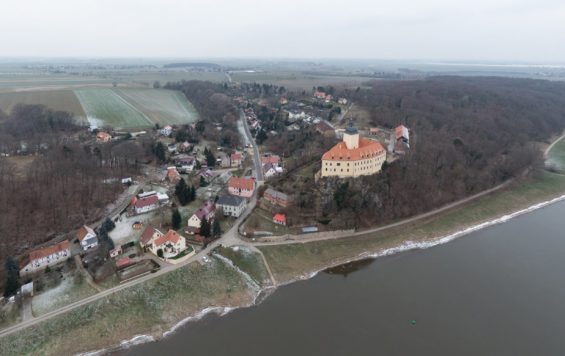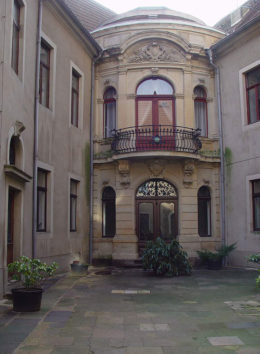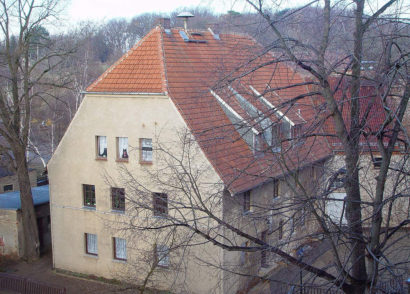Neuhirschstein Subcamp
October 7, 1943 – March 4, 1944
Codename: "Haus Elbe"
![]()
Aerial view of the Neuhirschstein, 2019 (Flossenbürg Concentration Camp Memorial / Photo: Rainer Viertlböck)
![]()
Castle Neuhirschstein, 2003 (Flossenbürg Concentration Camp Memorial)
![]()
Side of the Castle Neuhirschstein, 2003 (Flossenbürg Concentration Camp Memorial). Prisoners were forced to convert this building into a guardhouse for the SS.
-
Prisoners
Starting October 1943, 150 prisoners arrived from Dachau concentration camp (mostly Italians); afterwards, smaller contingents were transferred, mostly from the subcamp Dresden SS-Engineer's Barracks. In December 1943, 220 prisoners were in Neuhirschstein, of whom half were skilled construction workers.
-
Forced labor and quarters
Fortifications and construction work on Neuhirschstein Castle for the Higher SS and Police Leader in the Elbe sector. The castle was being prepared for the internment of the Belgian royal family, who arrived in Neuhirschstein in June 1944.
-
In addition, the SS loaned out prisoners on short-term agreements to local firms (e.g. a carpentry workshop). Stables and sheds close to the castle served as prisoner quarters.
-
Guards
50 SS guards. Detail leader Artur Abe was sentenced after the war to a long prison term for the shooting of prisoners trying to escape.
-
Death toll
At least eight prisoners
-
Disbanding of the camp / end of the war
In March 1944, the last 30 prisoners were taken away. According to the International Tracing Service, prisoners were deployed at Neuhirschstein until the end of May.
-
Commemoration
None


